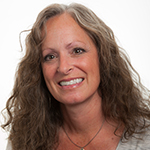- Online Programs
-
-
- Undergraduate
- Graduate
- Business
- Education
- M.A.Ed. Teacher as Leader - Autism & Applied Behavior Analysis
- M.A.Ed. Teacher as Leader – C&I
- Master of Arts in Education in Educational Leadership
- M.A.Ed. Teacher as Leader – Learning & Behavior Disorders
- M.A.Ed. Teacher as Leader – Moderate & Severe Disabilities
- M.A.Ed. Teacher as Leader – Special Education
- M.A.T. – Secondary Education
- M.A.T. – Middle Grades
- View all education
- Healthcare
- Informatics
- Legal/Social Work
- Nursing
- Technology
- Post-Graduate
- Education
- Doctor of Education in Educational Leadership
- Ed.S. in Teaching and Leading – Autism & Applied Behavior Analysis
- Ed.S. in Teaching and Leading – Curriculum & Instruction
- Ed.S. in Teaching and Leading – Learning & Behavior Disorders
- Ed.S. in Teaching and Leading – Moderate & Severe Disabilities
- Ed.S. in Teaching and Leading – Special Education
- View all education
- Nursing
- Education
- Certificate
- View all programs
-
-
- Getting Started
- Resources
- Apply Now
Dr. Missy Jones
Professor

Be open to learning new things and find joy in your learning.
Degrees Held:
- Ph.D. in Educational Leadership, Miami University – Oxford, 2001
- M.Ed. in Special Education – Emotional/Behavioral Disorders – University of Cincinnati, 1991
- B.S. in Special Education – Developmental Handicaps – University of Cincinnati, 1988
Career Highlights:
- Authored or co-authored two books, including Whisper Writing: Teenage Girls Talk about Ableism and Sexism in School, four chapters in edited books, four national policy papers, 11 peer reviewed articles, and three non-peer reviewed articles
- Awarded the Frank Sinton Milburn Outstanding Professor Award, 2016
- Promoted to professor, 2013
- As a member of the Haitian Curriculum Committee, co-designed a curriculum on Respect for the Haitian Education Ministry for the purpose of eradicating childhood slavery (Restave) in Haiti, 2010-2013
- Co-authored a unit of instruction, co-designed curriculum materials, and co-facilitated teacher trainings in Haiti, 2011
- Awarded the Faculty Excellence Award for sustained excellence in outreach or public engagement, 2009
- Founder and director of the Supported Higher Education Project (SHEP), 2007 - present
- Received tenure and promoted to associate professor, 2007
- Guest lecturer in Japan to help bring about inclusive practices in Japanese schools, 2005
Which online degree program(s) do you teach?
Which classes do you teach online?
EDS 572: Secondary Special Education Programs and EDG 660: Learning and Behavior Disorders
What do you want students in your courses to learn? What is the learning outcome or objective?
As a professor of special education, it is my responsibility to make sure that all my students understand the laws and research-based practices that govern and influence our work with children who have disabilities. However, I also am a scholar of disability studies, which focuses on understanding the perspective of those who live with a disability. In my courses, I try to marry the two perspectives, creating opportunities for teacher candidates to gain compassion and a deep level of understanding about the disability experience in order to better reach and support their students with disabilities, as well as the students' families.
What advice would you give to those considering an online education programs?
Schedule time throughout each week to complete readings and assignments. Avoid trying to complete them all in one day. The assignments are designed to be doable within the fast-paced time frame, but you have to remain diligent and committed to the course. You will learn a lot, but you have to be prepared to think critically and actively apply what you are learning to your personal and professional teaching and learning experiences. Be open to learning new things and find joy in your learning. Each completed assignment is a celebration of new knowledge!
What qualities make someone particularly successful in education?
In education, particularly special education, having the dispositions for teaching are critical. These include being open-minded, flexible, collaborative, persistent, curious, kind, and compassionate. Knowledge within the field is important, but being able to generalize and apply that knowledge is a must.
I believe that great teachers have to actually like the folks they are teaching. It is less about the content, and more about relationships that contribute to the success of professional educators.
What do you think is the biggest challenge that people in education face today?
Not having enough time has consistently been a complaint of special education teachers over the years. Time to collaborate with general education teachers, families, and other professionals, as well as time to plan effective instruction.
Why did you start teaching?
I was born in to the world of disability as the younger sister of someone with a disability. My brother, who is now deceased, had an intellectual disability due to an accident at birth. My family taught me about inclusion, but I learned through my parents' experiences with schools about exclusion, and I learned from society about the stigma attached to disability. I never wanted anyone to feel isolated or less-than, so I became a special education teacher with the goal of creating inclusive communities in and out of school.
Request Information
Submit this form, and an Enrollment Specialist will contact you to answer your questions.
Or call 800-985-7215
By submitting this form, I am providing my digital signature agreeing that Northern Kentucky University (NKU) and its agent, Academic Partnerships, may email me or contact me regarding educational services by telephone and/or text message utilizing automated technology or a pre-recorded message at the telephone number(s) provided above. I understand this consent is not a condition to attend NKU or to purchase any other goods or services.
Ready to Begin?
Start your application today!Or call 800-985-7215
800-985-7215
for help with any questions you may have.